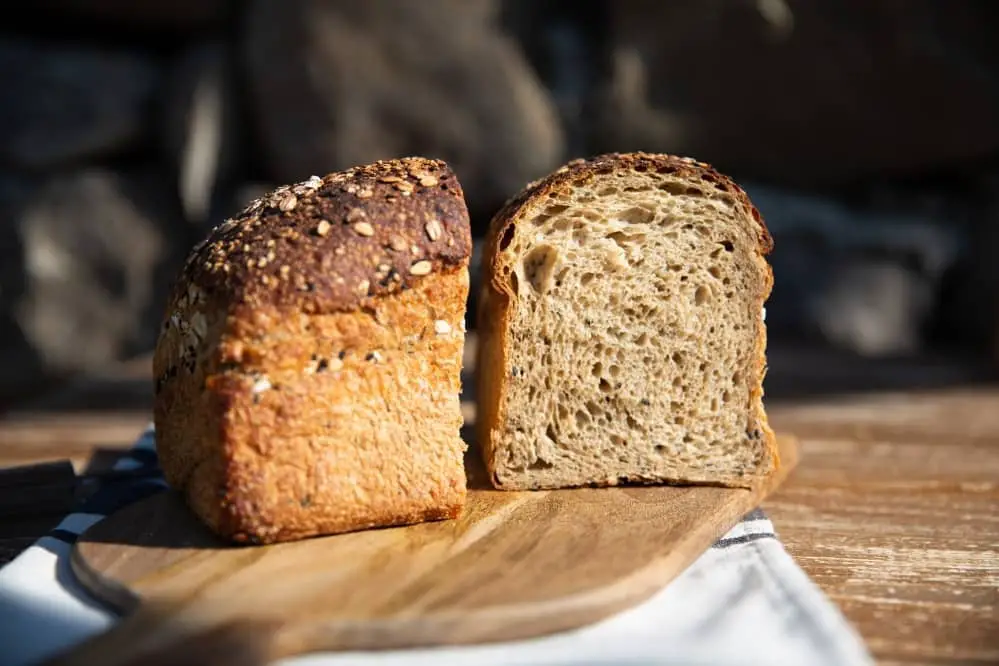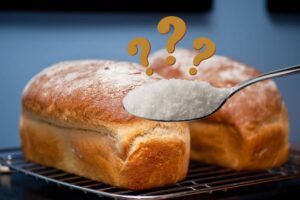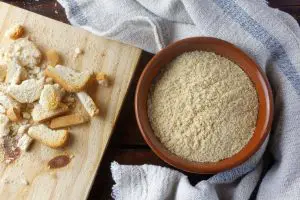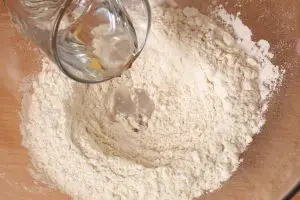Most people have heard of artisan bread, but what exactly is this type of bread? And is it truly healthier than a regular loaf of bread? Some of the answers vary depending on who you ask, yet there is still some consensus among some of the answers. Artisan bread is usually defined as bread that uses only natural ingredients and is made by a true artisan, or expert.
It would seem that artisan bread is better in every way than a standard loaf of bread, but the truth is that that isn’t always the case. Let’s take a look at the main differences between artisan bread and regular bread and a few other details so that you can decide for yourself which one to choose.
Five Differences Between Artisan Bread and Regular Bread
Sometimes the best way to learn the difference between artisan bread vs. regular bread is to describe how and why they are different, so below are some of the main ways that these two breads are different from one another.
1. Artisan Bread Uses Traditional Methods
This is one of the problems with trying to define “artisan” bread. In other words, what exactly does “traditional” methods mean? Some experts say this means that the bread should only contain four ingredients: flour, salt, water, and yeast. There should be no artificial preservatives and nothing that isn’t considered a natural food
Still other definitions say that “traditional methods” means that the bread has to come from an “authentic” recipe, but again, how exactly is that defined?
One thing seems to be certain when it comes to artisan bread: it is not filled with preservatives or made in a “cookie cutter” fashion. Artisan bread is not mass-produced, and it always sticks as close as possible to a recipe and baking method that is a lot like the homemade bread of olden times.
The baker is usually someone with expertise in the art of breadmaking, and there are only pure and natural ingredients in every single homemade loaf.
2. Artisan Bread Uses Only Natural Ingredients
One of the biggest differences between artisan bread and regular bread is the lack of harsh chemical ingredients in the former. While all breads have “chemical” reactions when the bread is rising, being kneaded, and being baked, artisan bread doesn’t have any harsh chemicals in it, nor anything artificial.
Lecithin, for example, is an emulsifier that allows natural enzymes to react with the flour in order to make the bread. It is not a true “chemical,” yet it is one of the ingredients that makes bread bread.
Another factor associated with artisan bread is the flour used. Once again, you get different opinions depending on whom you ask. For instance, many people claim that artisan bread has to use bread flour, while others claim that the grain count has to be a certain number. Still others claim that it doesn’t matter what type of flour you use as long as you don’t alter it or change it in any way.
3. Artisan Bread Cannot Be Mass-Produced
Because artisan bread is always homemade, it is never able to be mass-produced. Having said this, many bakers now sell artisan bread that is available in large quantities. Does this mean the bread is not artisan bread? This area can be a little fuzzy when it comes to determining which bread can be classified as artisan and which ones can’t.
Once again, some people claim that artisan bread always has to be made by hand, but even today’s best bakers are utilizing technology such as mixers and bread machines to make their bread. This allows them to make many more loaves of bread that they otherwise would.
And just because these bakers can make dozens of loaves per day instead of just a handful, does this mean that the bread isn’t artisan bread? Most people would likely answer that question with “no.”
4. Artisan Bread Is Made by a True Artisan
“Artisan” can mean different things to different people, but as a general rule it means someone who is an experienced professional at a certain trade, such as baking bread. But again, what does that definition really mean? Is it referring only to bread-making experts who have their own bakery and no one else? What about people who make homemade bread in their homes and are getting to be experts at it? Do they qualify as artisans?
This is yet another area that can be a little vague when it comes to deciding what exactly constitutes “artisan” bread. Some people make excellent, top-quality homemade bread and never sell it; they just give it away to their family and friends.
Yet most people believe that people such as this are the true artisans. Homemade bread is usually made with all-natural ingredients, using traditional methods, and by people with experience, whether they get paid to sell their bread or not.
5. Artisan Bread Takes Longer to Make Than Regular Bread
Artisan bread can take longer to make than regular bread simply because the fermentation process, which should last for up to 24 hours, is recognized when making this type of bread. When bread is mass-produced, bakeries don’t give it this much time.
What do they do instead? They add certain “chemicals” to speed up the process, but these chemicals usually include gluten, ascorbic acid (commonly known as vitamin C), ginger, lecithin, and others, which are not exactly harsh or fake chemicals.
What that means is simple: when it comes to how long it takes to bake artisan bread vs. regular bread, the differences are usually minimal. By many people’s definition, the process is exactly the same between the two types of bread. The “chemicals” used to speed up the bread-making process in mass-produced or regular bread are not true chemicals at all.
For this and numerous other reasons, this definition of artisan bread is also vague, inconsistent, and in the end likely doesn’t mean all that much.
Is Artisan Bread Healthier Than Regular Bread?

In reality, at least according to many different studies and surveys that have been conducted, artisan bread is really not healthier than regular bread. Is artisan bread more nutritious than commercial breads you find in the supermarket? Maybe, maybe not.
In most tests, the nutritional characteristics of the artisan bread showed no advantage over most regular bread, especially when the regular bread was made by an individual or a bakery that still makes the bread individually either by themselves or with a bread machine.
And what about the tastes of the two types of bread? Once again, the test results were inconsistent. Some surveys did indicate that certain breads were preferred by more customers, but it wasn’t always the artisan bread or the regular bread, for that matter.
In some taste tests, people seemed to prefer the artisan bread, while in other tests, the regular bread seemed to have more fans. It all depends on which test results you want to pay attention to.
In conclusion, there doesn’t seem to be an overall difference, nutritionally or taste-wise, between artisan bread and regular bread. That should make people who prefer the convenience of buying regular bread from a store feel much better about their decision.
Both breads seem to be both tasty and nutritious, so if you hate making homemade bread but you believe that it’s the only way to get bread that’s good for you, you can stop now because that isn’t true.






